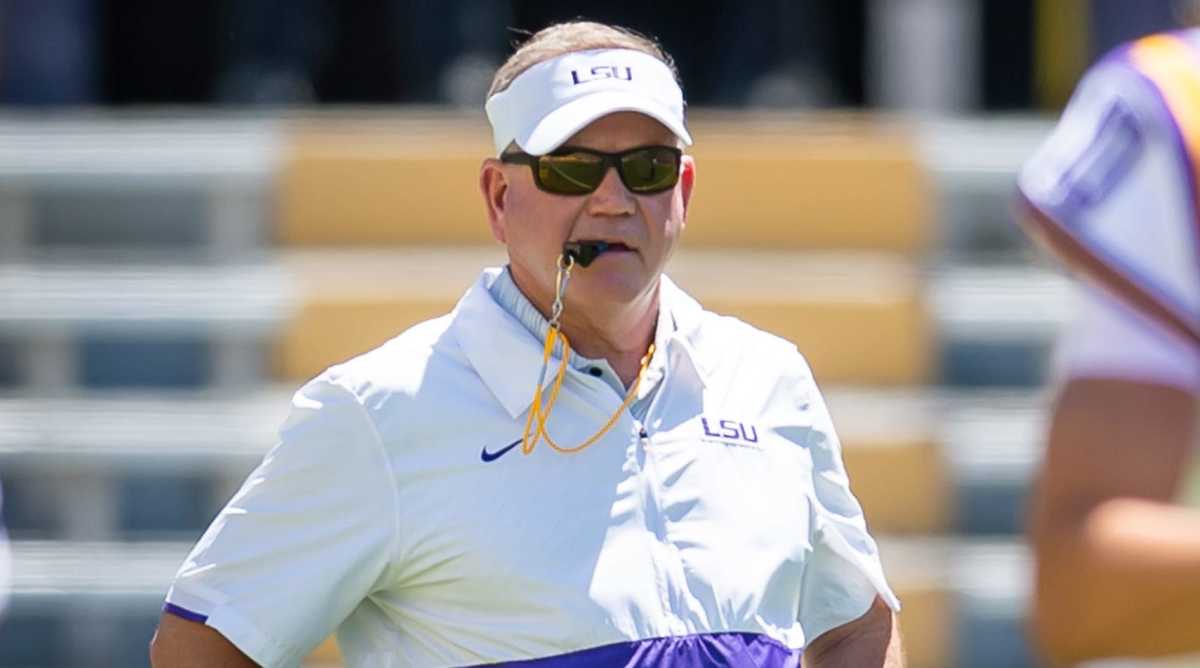LSU’s New Injury Reporting System Reflects Impact of Gambling on College Sports

In a preseason release to local media, LSU included a bullet point that might seem innocuous but could begin a trend due to the high profile of the Tigers’ football program.
Head coach Brian Kelly will deliver injury reports with probable, questionable, doubtful or out designations on Mondays, Thursdays, and Saturdays, along with clarifications on whether the ailment is related to the upper body, lower body or illness on Mondays and Thursdays. Players on the Monday and Thursday reports will then be cited as either available or unavailable on Saturday before each game.

The approach blends both NFL and NHL protocols. Pro hockey teams report upper or lower body. NFL teams report the affected body part (biceps, ankle, concussion, etc.) with a probable, doubtful or out for game designations. Throughout the week, NFL teams release injury reports from Wednesday to Friday according to how many snaps a player participated in on a given practice day (limited, full, or none). The league has a penalty structure if teams fail to report or are found to have lied.
An SEC spokesperson says that while the conference has discussed implementing such a system in the past, it is currently “not a topic of discussion right now.” Football coaches are typically intensely guarded about information concerning their teams, and injury reporting in the SEC and college football varies with no standardization across the board.
For instance, while South Carolina’s Shane Beamer sometimes delivers injury reports unprompted, at other times reporters have to ask. A school spokesperson said a discussion has not been had about how Beamer will handle injuries this season. At Missouri, Eli Drinkwitz delivers updates in his Thursday gameweek press conference. At Alabama, Nick Saban makes reporters work for it.
“You have to ask. You have to do your homework,” Saban said in an October press conference. “I am not bringing an injury report in here and telling you. So you want to know about a specific guy? I’ll be glad to share the information. But I don’t have an injury report.”
In the midst of LSU’s renewed transparency, it’s impossible to ignore the growing prevalence of gambling and increased fervor for inside information to gain an edge when placing wagers. Clear and consistent injury reporting can help protect players and staffers from being leveraged for inside information that, if shared, would land them in deep trouble with the NCAA. It also helps with the integrity of the games.
A recent baseball scandal involving Alabama baseball in a game played against LSU, which resulted in the firing of Crimson Tide coach Brad Bohannon, has the topic on the front of minds in Baton Rouge.
Whatever the motivations, instituting this type of system allows LSU to control how its information is being disbursed and ensure it occurs in an orderly way.
Kelly will speak to the media for the first time preseason on Thursday.
At the SEC’s spring meetings, Drinkwitz said he was in favor of a standardized injury report:
“The NFL is the best sports league, in my opinion—which is not very well educated—in my opinion, the best sports league in the world for a reason. So the more that we can streamline, do some of those things, the better—especially now that we’ve kind of moved away from our collegiate model into more of a business model. I think that we need to put those safeguards in place. We provide an injury report every Thursday. Don’t have to, but that’s what we believe in doing and that’s what I believe in doing.”
Sports betting is live and legal in Louisiana, Arkansas, Tennessee and Mississippi. It will soon be live in Kentucky, which plans to start taking sports bets in September just in time for football season. It is legal in Florida, but hung up in a legal dispute. Every other SEC state has yet to pass a bill on it, including Oklahoma, which will become an SEC state next year.
